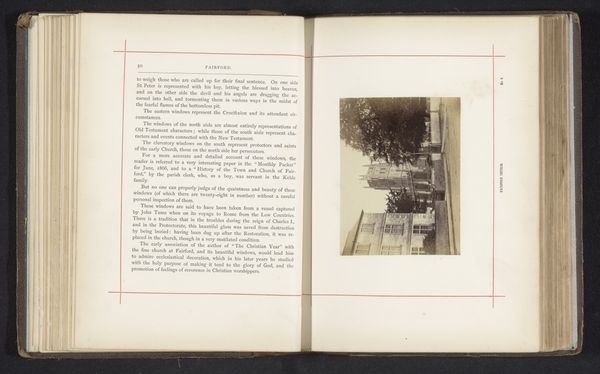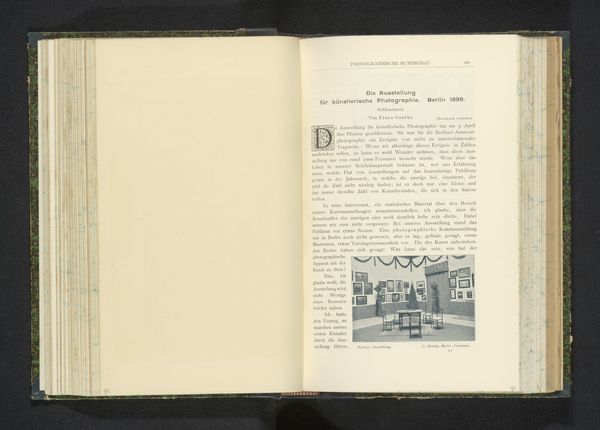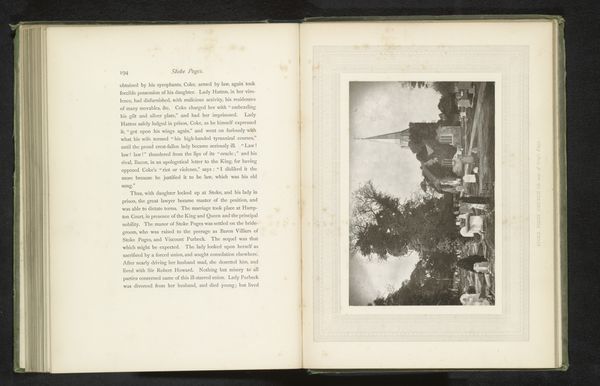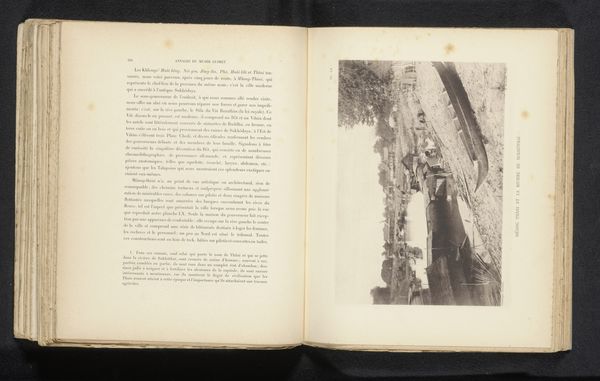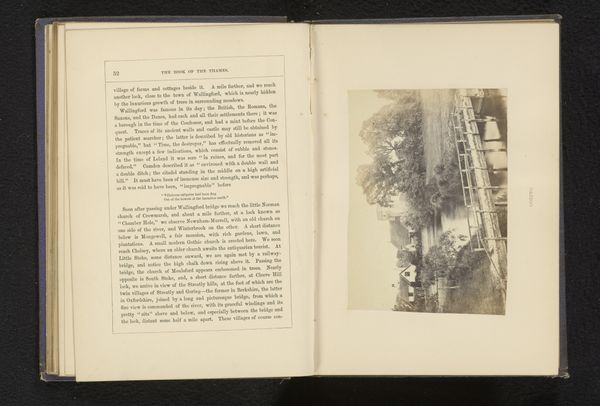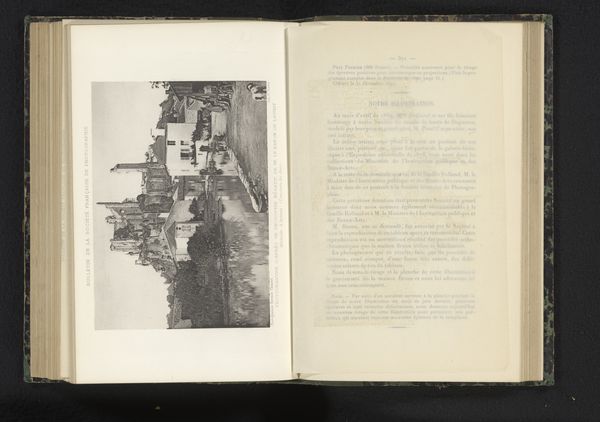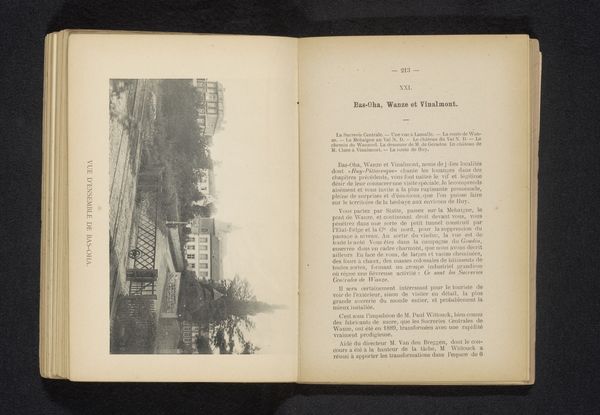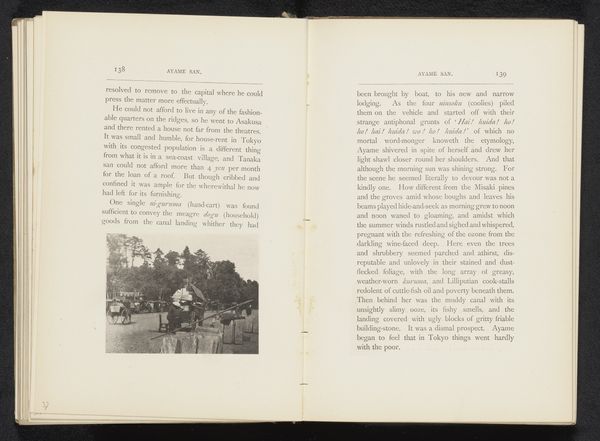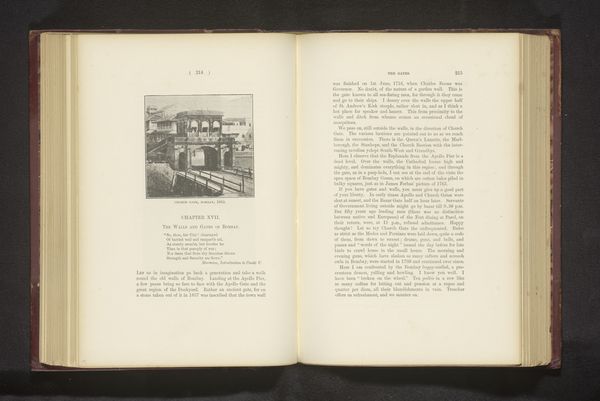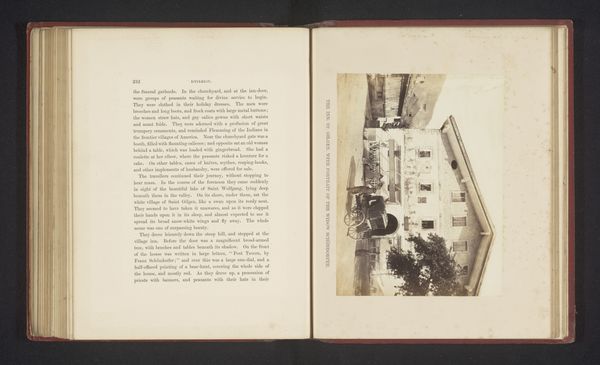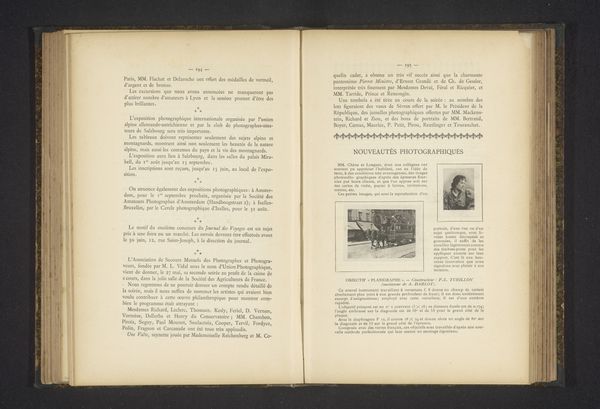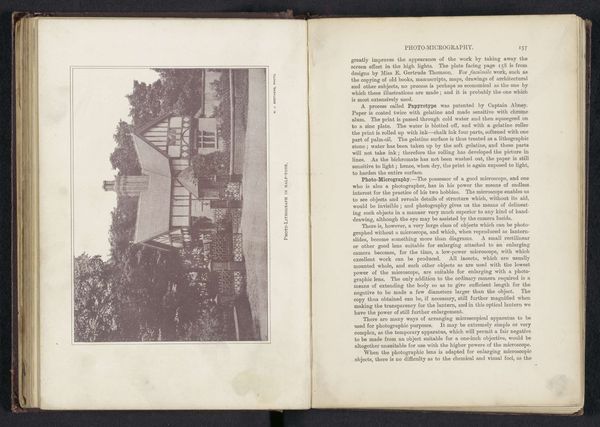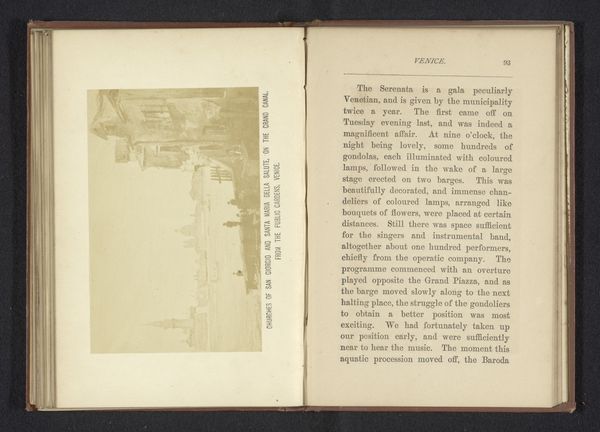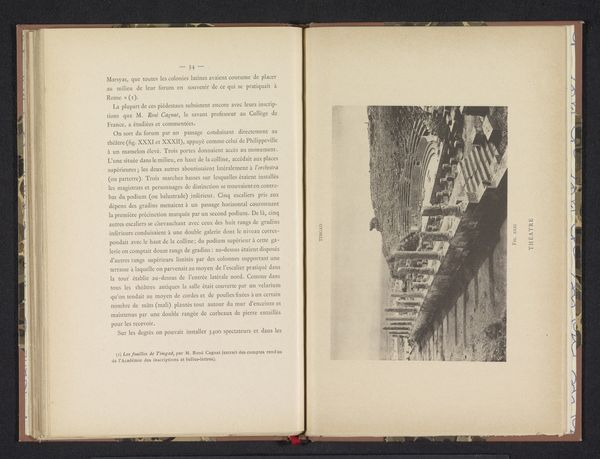
print, etching, textile, paper, photography, engraving
# print
#
etching
#
textile
#
paper
#
photography
#
genre-painting
#
academic-art
#
engraving
Dimensions: height 88 mm, width 133 mm
Copyright: Rijks Museum: Open Domain
This reproduction of Edward Poynter's "A Visit to Aesculapius" captures a scene steeped in ancient healing traditions. Dominating the composition is Aesculapius, the Greek god of medicine, often symbolized by the serpent-entwined staff, which you can see here to the right. This potent emblem, known as the Rod of Asclepius, is a symbol of healing and medicine. The serpent, shedding its skin, embodies renewal and rebirth, concepts deeply intertwined with the art of medicine. One can trace the serpent motif through various cultures. Its earlier forms appear in Mesopotamian healing rituals. The serpent's influence weaves through time, evolving into different forms, yet consistently representing life, death, and regeneration. The image evokes a sense of hope and vulnerability, engaging our subconscious understanding of health and mortality. Such symbols create a powerful connection between the viewer and the artwork, bridging temporal gaps and tapping into collective cultural memories. The image resonates because of the constant rebirth of these symbols. It reveals our continuous attempt to understand and conquer illness.
Comments
No comments
Be the first to comment and join the conversation on the ultimate creative platform.
